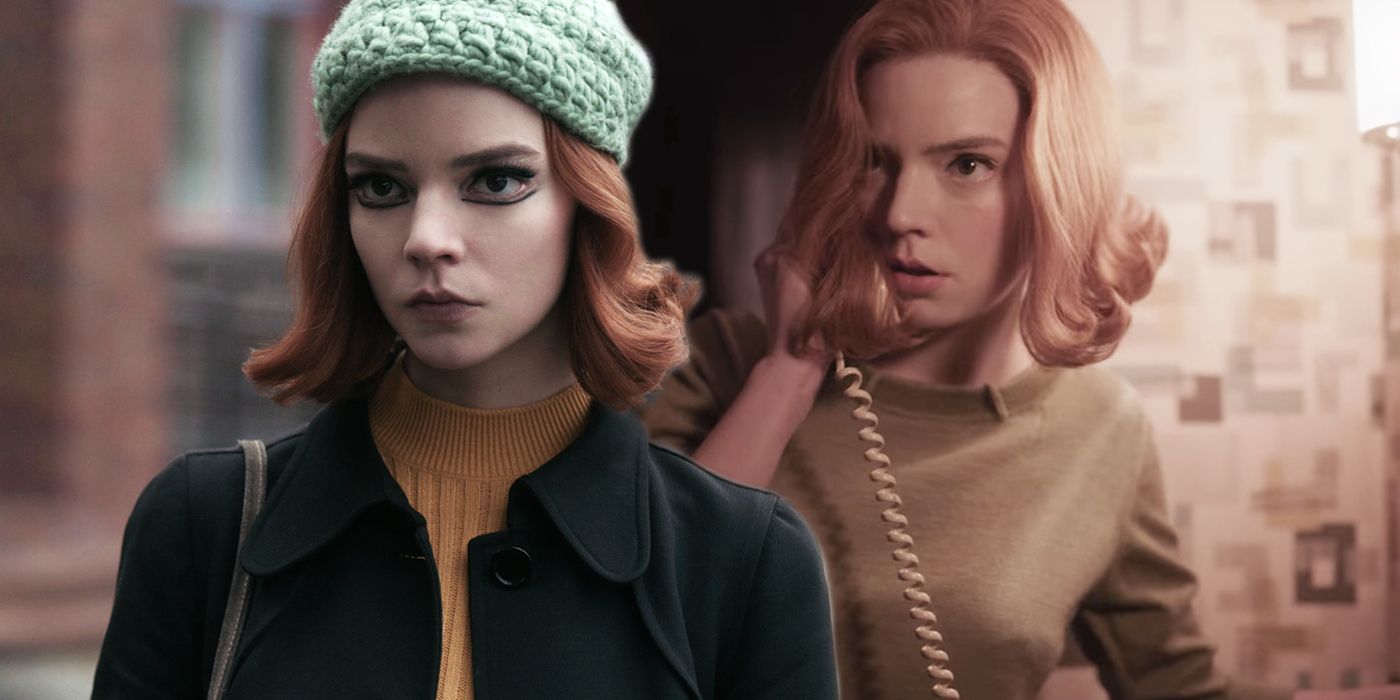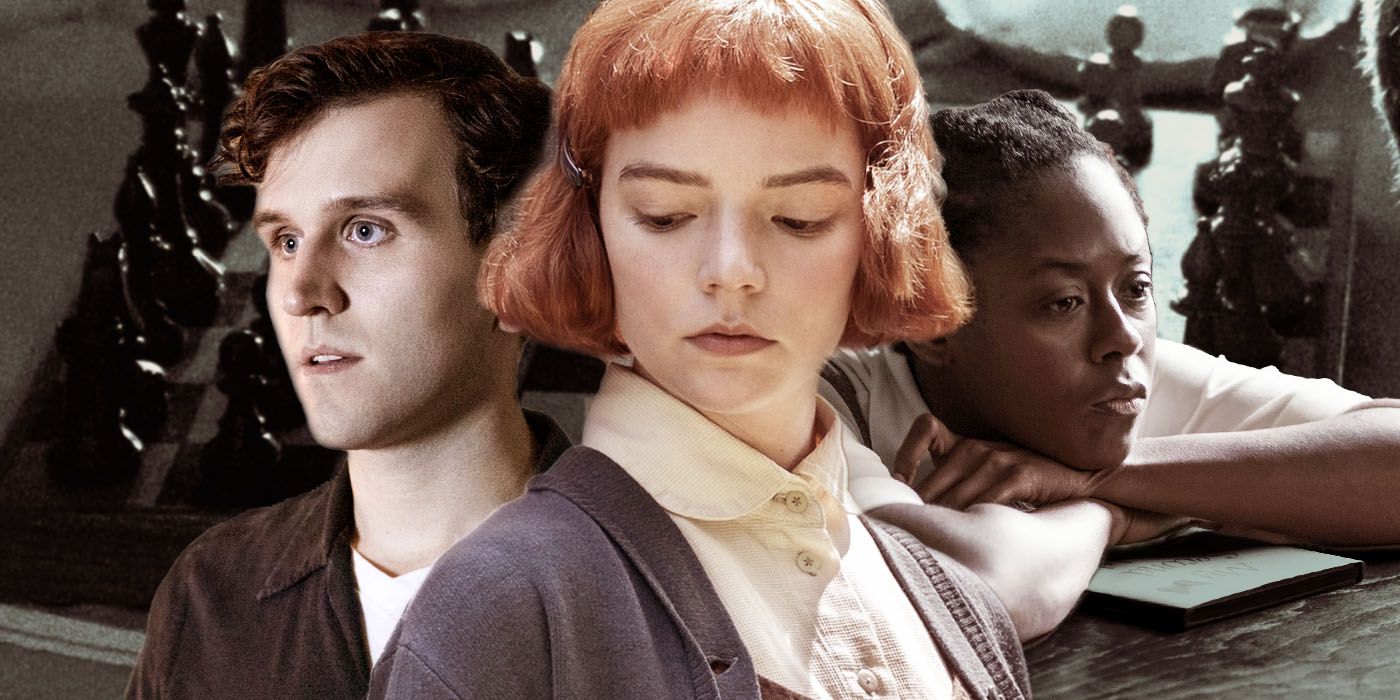In The Queen's Gambit episode 6, "Adjournment," Beth receives a phone call from a familiar voice — which tips her over the edge emotionally, sending the chess prodigy on a lengthy alcohol-fuelled bender. The downfall of Beth Harmon is an important step in her overall journey, as it serves as the rock bottom that she must come back from. Who is on the other line, and why does his voice trigger her?
One of the best TV shows of 2020, The Queen's Gambit is a Netflix original miniseries based on the Walter Tevis novel of the same name. Both the TV show and the book follow the rise of young chess prodigy Beth Harmon, who steadily climbs the competitive chess circuit in its heyday — the Cold War — while also discovering who she is as she blossoms into adulthood. As much a coming-of-age story as it is an inspirational sports story (and period piece), the heart of The Queen's Gambit is Beth's struggles to overcome her own insecurities, addiction issues and emotional trauma.
The penultimate episode appropriately shows Beth at her lowest: having lost her mother — and what should have been a career-defining match in Paris — Beth struggles to find balance in her life. She comes home and discovers Allston Wheatley, her terrible adoptive father, is trying to renege on his deal with her for the house. In a thrilling bit of power play, Beth stands up to him and buys the home — both a tribute to her mother and a demonstration of her autonomy, strength, and financial success. Although she initially seems to be over her devastating loses and to be on the right path, a trip to a restaurant and a subsequent phone call sends her spiralling. The voice on the phone is Harry Beltik — one of Beth's regrets, and a reminder of all that she's lost.
Harry comes to visit Beth immediately after her mother dies, under the pretence of "helping" her with her chess — even though she's demonstrated far superior skill to his own, having bested him in her first tournament. He stays in her home and the two begin a sexual relationship, despite her being much younger than him and grieving the recent loss of her mother. Eventually Harry realizes Beth's not the manic pixie dream girl he had made her out to be, and perhaps recognizing how he was taking advantage of her current state, leaves her — but does so saying, "I'm glad I could be here with you, you know? After you lost your mom."
Harry means well, and Beth obviously cares about him, but he lacks the self-awareness to realize how harmful his presence was. Rather than deal with her grief, Beth uses him as a distraction, which only contributes to her own feelings of insecurity and low self-worth. Furthermore, his parting words that Beth should "be careful," after comparing her to Morphy, a celebrated chess player who "fell into muttering paranoia and died," reinforces Beth's fears that she is doomed to follow in the tragic footsteps of her mother Alice, whose tragic past is revealed through the The Queen's Gambit flashback scenes.
The reason why Harry's phone call drives Beth into her addictions is twofold: one, because he reminds her of her mother's death, just as the singer in the restaurant did, and she is unwilling to confront those feelings head on; and two, because his final words to her implied that she was going to "go crazy" like her mom — a notion Jolene successfully challenges in The Queen's Gambit finale. This is why she doesn't want to talk to him, but will still talk to Benny after their romantic relationship ended. Initially Beth leans into substance abuse, allowing herself to become the person Harry had suggested she would. Harry's concern comes from a kind, well-intentioned place, but because their relationship started under such problematic circumstances, he is unable to help her — and ultimately, does more harm than good.


